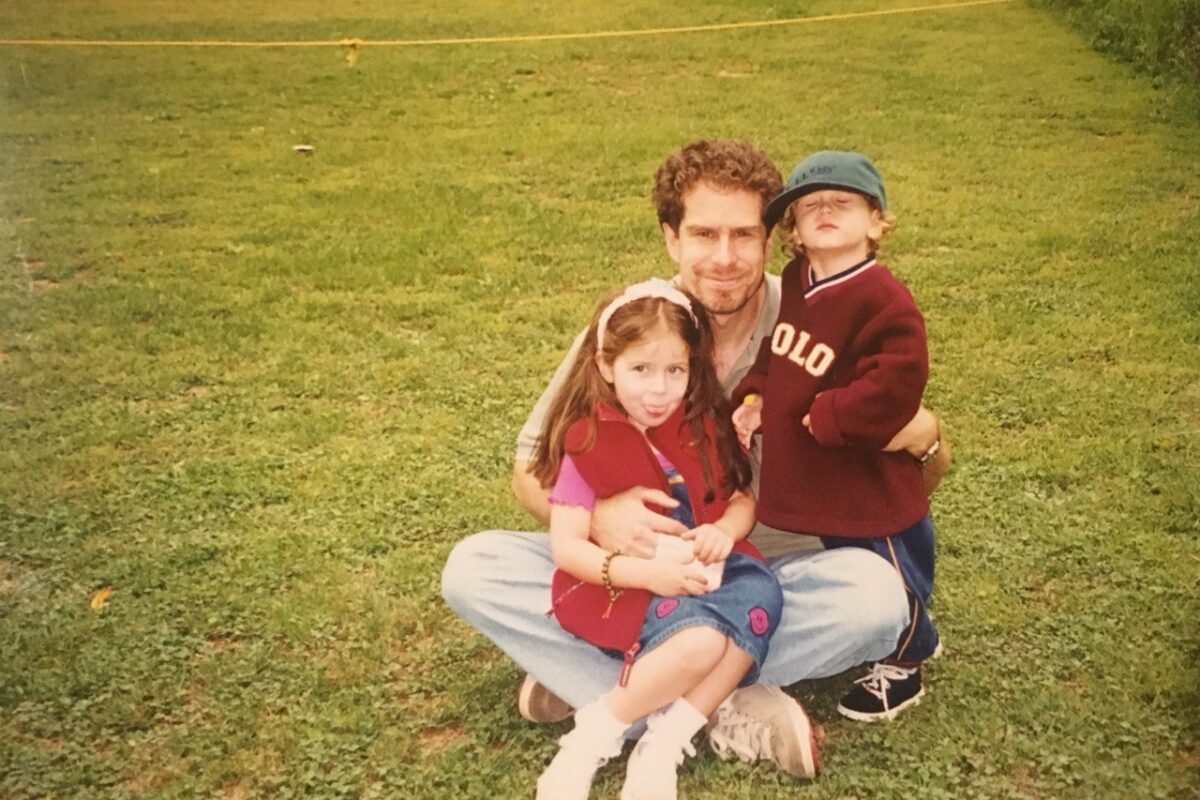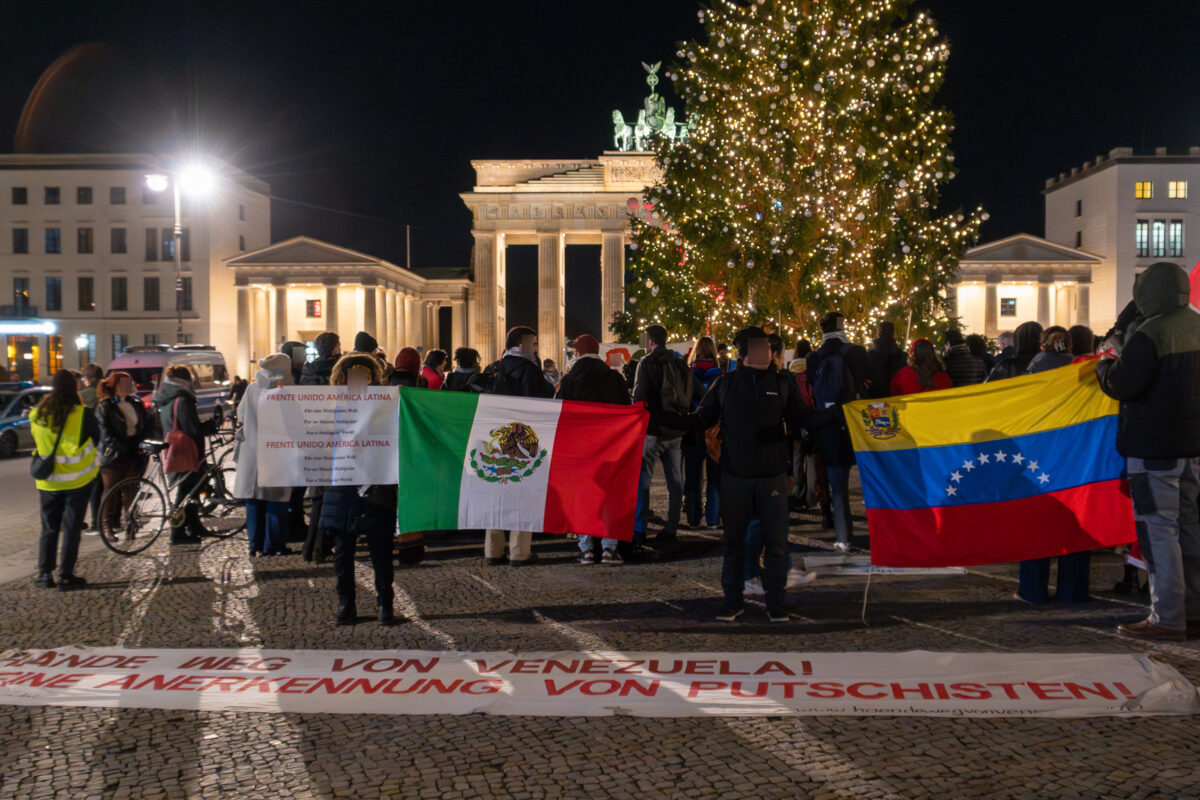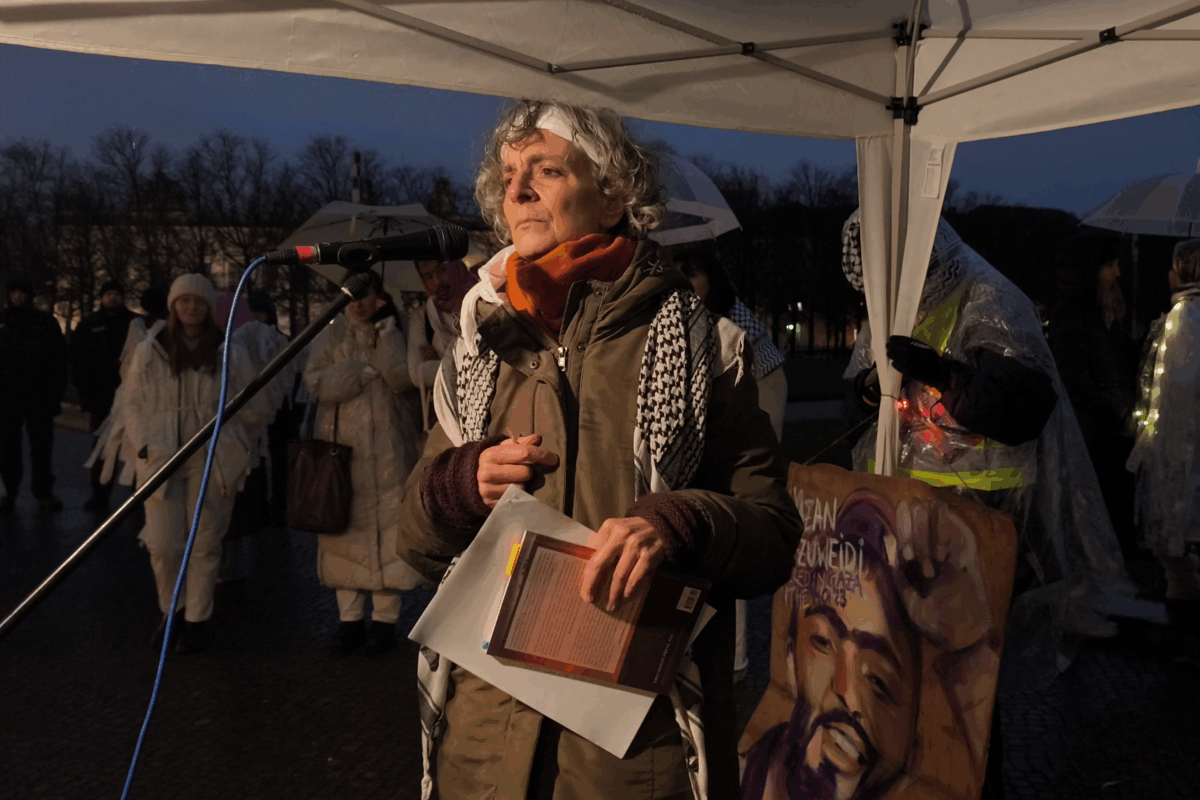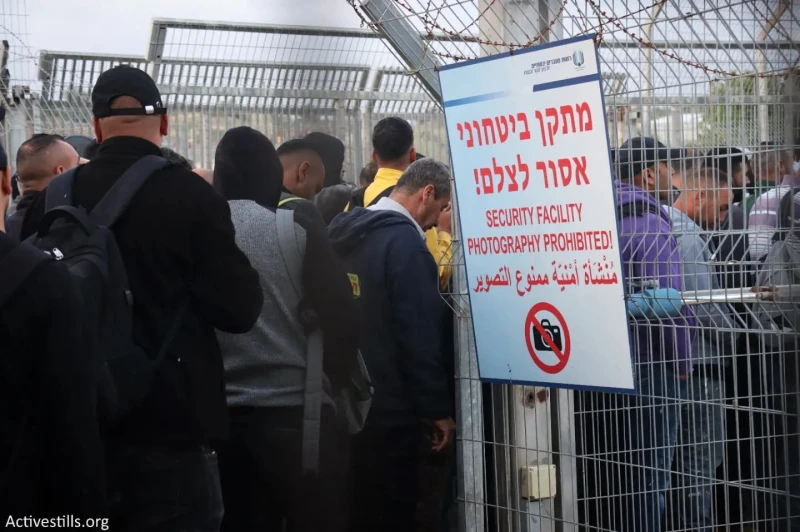Many years ago, I sat in my seventh grade English class and watched a boy named Jacob chew gum.
He was sharp, a bit nerdy, handsome, with a whip-smart sense of sarcastic humor. There was nothing out of the ordinary about his mannerism, nothing noteworthy about the way in which he did his work, listened or didn’t listen. He was entirely pleasant, unobtrusive. Who knows if it is accurate, but I remember him as being one of those students who wasn’t particularly fussed about participating, but when he was called on, he always had the perfect answer. (We would end up briefly dating in the weeks leading up to prom five years later, and then for no particular reason, never speak again thereafter.)
Our English teacher’s name was Mrs. O’Karma. She was middle-aged, with silver blond hair and glasses. She had been teaching for many years and was generally known for being a bit ruthless. The “popular” kids admired her for this, attention in which she openly delighted.
On that day, she turned to Jacob, eyed his jaw cracking down on the piece of gum, and interrupted her lesson to say, “Jacob, come to the front of the classroom.”
Jacob’s face turned red. He was shy. He stuttered a bit, pointed at his chest. “Me?”
“Yes,” she replied with a raised eyebrow and a faint smirk.
He stood up, walked to the front, turned to face Mrs. O’Karma with his back to the whiteboard.
She stared down at him, paused and then said, “Put your gum on your nose.”
The class burst out laughing. Jacob turned redder. “W-what?”
“You heard me. You are distracting the class by chewing gum, which you know is against the rules. If you have such little respect for the rules, then you can face the consequences in front of all of us. Now put your gum on your nose, or you will be sent to the principal immediately.”
Jacob was frozen. I watched, mouth hanging open with shock and trepidation. Just go to the principal’s office! I thought frantically. He reached up, a halting, trembling motion, to remove the piece of gum from his mouth. Then, from between his fingers, he pinned it to the tip of his nose.
The class roared. Mrs. O’Karma sat on a desk beside him, swinging her legs in depraved glee, grimacing with a sick thrill I had never witnessed in my life until that point; let alone on the face of an adult intentionally humiliating a child. I looked around in disbelief, utterly mortified.
Mrs. O’Karma continued mocking and ridiculing Jacob, who turned redder and redder, as did I, in childlike innocence, half dissociated. I imagined that someone or something would come to the rescue. Another teacher? A heroic classmate? An all-merciful fire alarm?
No one else in the entire room objected.
It’s been nearly two decades since these moments. Adrenaline, emotion and time have long since blurred and obscured most of the details of the memory, but Jacob’s horrified expression remains in my mind’s eye. And the far more powerful thread of the experience, which still cuts through my gut from that day to the present one, is the repulsion I felt as I observed those observing this show of malice:
Why did they laugh?
***
I am retelling this story during a staggering, widespread rise of global authoritarianism and fascism.
The so-called state of “Israel” is committing a Holocaust in Gaza, having murdered hundreds of thousands of Palestinians through the bombings of hospitals, schools, mosques, churches and refugee camps, and every other existing form of civilian infrastructure. They have sniped children and wounded people in hospital beds, assassinated journalists having smeared and dehumanized them for the crime of telling truths. They have employed industrial starvation, rape and torture in concentration camps using dogs and electricity, alongside virtually any other conceivable and inconceivable crime against humanity.
The United States, Britain, Germany and much of the West have escalated their extreme repression of Palestine solidarity through horrifying police brutality and sexualized, racialized violence. For years, they have held political prisoners in inhumane detention without trial, raiding homes, criminalizing the use of arbitrary phrases and words on social media and at demonstrations (“Zionists are fascists”, “From the river to the sea”, “Israel murders children”). They have proscribed non-violent direct action groups like Palestine Action as “terrorist organizations”.
The Trump regime has spent billions of dollars on ICE, the beefed-up American variation on the theme of their affectionately regarded Gestapo, kidnapping people off the streets (immigrants and citizens alike), sending them to internment camps, and sometimes torturing them to death. Companies like Palantir produce surveillance technology that is death-tested on Palestinians and exported all over the world for governments to use in oppressing their own people. Weapons manufacturers’ profits have skyrocketed and investment in militarization is at an all-time high.
The world, the land and its people burn, and the screaming urgency for a different, brighter future bursts more overwhelmingly than ever through the souls and wills of those who fight for it.
Living in Germany, I have experienced some of the most extreme repression in this climate as a result of my solidarity with the Palestinian cause, which represents a distinct threat to Germany’s sick, philosemitic obsession with defining Judaism as Zionism and arming “the Jewish state”. As a white, femme-presenting Jewish woman, what I have gone through is nothing close to what people of color have, particularly Arab men. But I am often in the streets at protests getting roughed up, arrested, manhandled, and choked by the Nazi storm troopers who go by the name of the Berlin police (they are, by the way, so affronted at being referred to as the former—while they pummel unconscious activists to a pulp behind the closed doors of police vans with illegal quartz sand gloves—that they will even sue you for saying so!).
I have been strip searched by cops who smirk with euphoria at the opportunity to degrade the Untermensch in front of them. I have been mocked, degraded and threatened while half naked on a toilet by armed officers living out the twisted 1930s Mengele torture scenes of their wildest fantasies. It is particularly hideous as a Jew whose family was slaughtered by Germans to gaze into the unfeeling, barbaric eyes of unreconstructed German SS-thugs. In 2025, the unbridled joy and perverse arousal they find in violently demeaning Jewish women is only exceeded by their unconcealed delight in stripping our Muslim sisters of their hijabs in the streets, grabbing Arab men by their genitals, and kidnapping minors out of their parents’ custody for chanting at protests.
I arrive home after these long days of brutality to a canvas of soft leaves, moonlit against the curtain-clad window in my room. I dance on a semicolon of sleep before the morning brings the exclamation of further state violence. I notice the physical aches in my body and the far more painful ones along deep, shadowed grooves in my heart. I slow my thoughts and use the well and tradition of struggle in which I am held to blot the welts of humiliation, which they arrogantly believe will cripple us. My mind wanders to their Hitler-loving grandparents, proudly beaming up at them from the most blistering depths of hell, where they will soon be reunited.
***
I rushed into the house after school, full of unstructured rage and tender pain. At the kitchen table with both of my parents, I told them about Mrs. O’Karma’s behavior, asked my mom to please call the principal and make sure she wouldn’t do this again.
My dad’s reply surprised all of us: He said he didn’t think my mom should call the principal. Rather, he said, I should go in and stand up to Mrs. O’Karma myself.
“Wait until the next time someone else chews gum in class. Maybe it won’t be tomorrow or this week, but there will be a next time. She will tell another student to put the gum on their nose. And you will go and report her to the principal yourself.”
I remember staring at him, wide-eyed. “Really? But – why? Can’t Mom do it?”
“Mom can do it. And if that’s what you want, then that is what we can do.”
“But Mrs. O’Karma is a bully, and bullies are weak. She knows what she is doing is wrong. How could she not? She does it anyway because no one is stopping her. “
“You are strong. And we are not bystanders. Never allow yourself to be a bystander when someone is being bullied. You can stand up for Jacob and for the other students. You can do this yourself.”
I was smiling, hyped and giddy in that breaking-the-rules, doing-something-cool way. My mom looked at my dad, a question in her face, raising her eyebrows and smiling as well.
“Do you want to do this?”
I gulped. I smiled wider, starting to imagine what it would be like to stand up to my teacher, grounded in the knowledge, the fact, that it was the right thing to do.
We spent the rest of the evening planning. We rehearsed, I asked questions, built up confidence. I went to bed with my mind racing, my adrenaline pre-emptively pumping.
It was within the same week that Mrs. O’Karma looked around the class and, with an eagle eye, spotted a girl named Lily, who happened to be sitting next to me, also chewing gum.
She called Lily to the front of the class. “You know what you have to do.”
My head began to pound. The class started laughing and hooting. I turned to Lily, whispered, “Don’t go up. Say no.” She nodded quietly.
“What are you waiting for?” Mrs. O’Karma sneered.
“I… I don’t want to,” mumbled Lily.
A threatening expression slid onto Mrs. O’Karma’s face. Her beady eyes narrowed.
I sat in my cold plastic chair, my palms clammy, chewing on the words that I had prepared. I looked around at the jeering faces amidst the din and chaos of this cruelty. I felt a growing lump in my throat, of fury, of fear, of justice, which propelled me to my feet, and I shouted:
“I AM GOING TO REPORT THIS TO THE PRINCIPAL!”
The entire room went deathly silent. My classmates stared at me with a mix of bemusement and nervousness. Mrs. O’Karma stopped cold as if she had seen a ghost. In that moment, I experienced in flesh and blood and lived experience, how weak bullies truly are.
I spun on my heel and marched out of the classroom without looking back.
***
This experience would go on to shape my character and define the course of my life.
In moments where I am forced to experience, but particularly, watch excessive police brutality, racist targeting, and every type of harassment inflicted on my friends and members of my community, I flash back to that classroom. I remember the righteousness of refusing to be a bystander, which my father ensured would flow through my veins at twelve years old and never ebb.
Mrs. O’Karma was suspended with pay for two weeks. When she came back, she had clearly been sternly instructed to be exceptionally nice to me. There were no further incidents. Ironically, the bigger source of stress was the other students—even friends of mine—who berated me for having overreacted and made Mrs. O’Karma “suffer.” I would go on to learn over many years how resoundingly typical of a reaction this is to those of us who stand firmly on the side of the bullied, the oppressed, the exploited, and against the powers that be. We are targeted not just by “authority figures,” but by bystanders, liberals and those committed to their own privilege and comfort granted by a system in which they can claim and enjoy a form of supremacy.
In a deeply unjust world, our material responsibility is showing up consistently to challenge its injustice. Our duty lies in an embodied understanding that our resistance is only as strong and lasting as our commitment to fighting for one another. Our power, and our hope for a better, fair, free humanity that belongs to us and not the bullies, relies on our choice to sacrifice: when it is hard, when it hurts, because it matters, because it is right.




